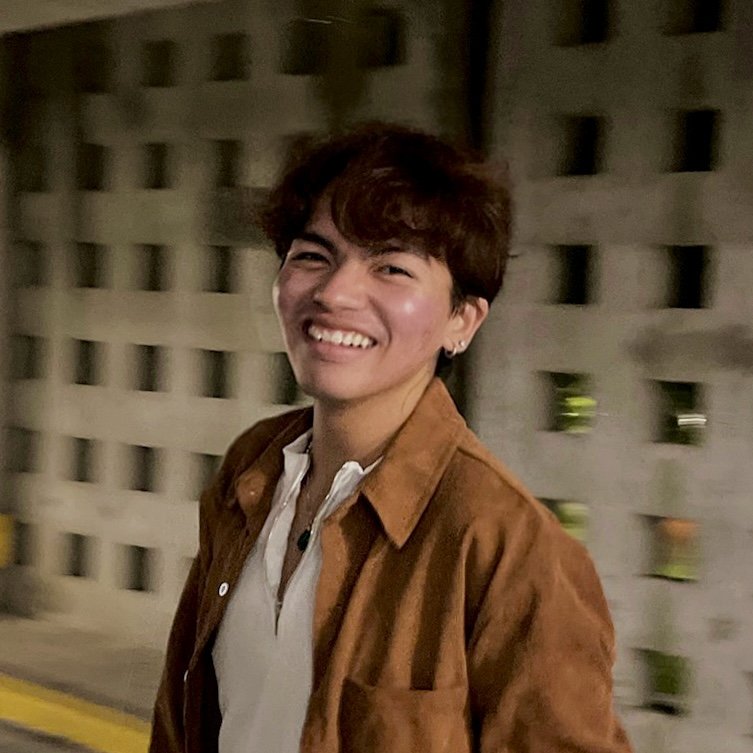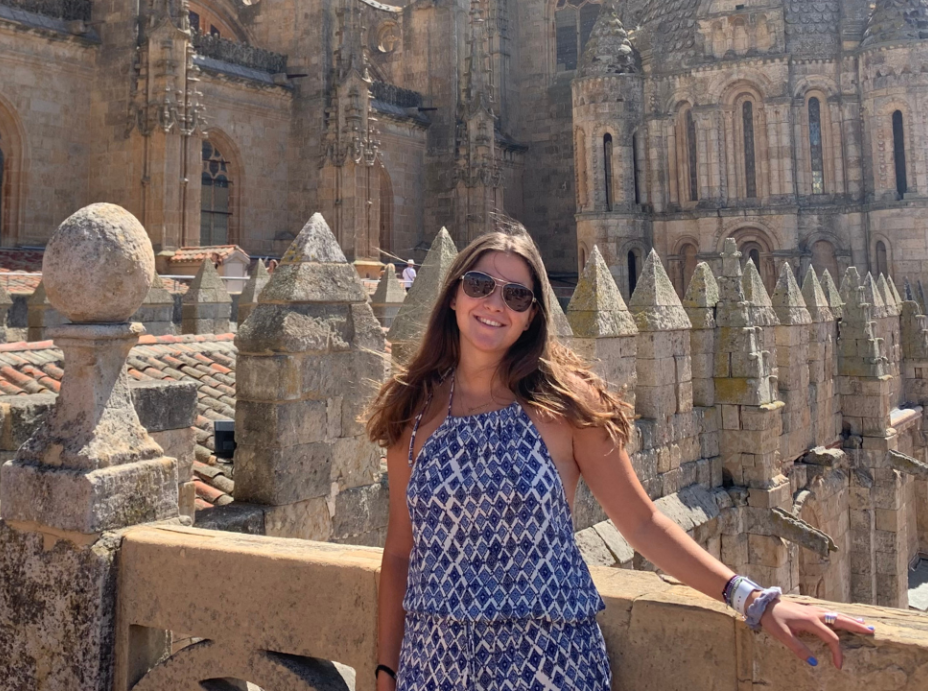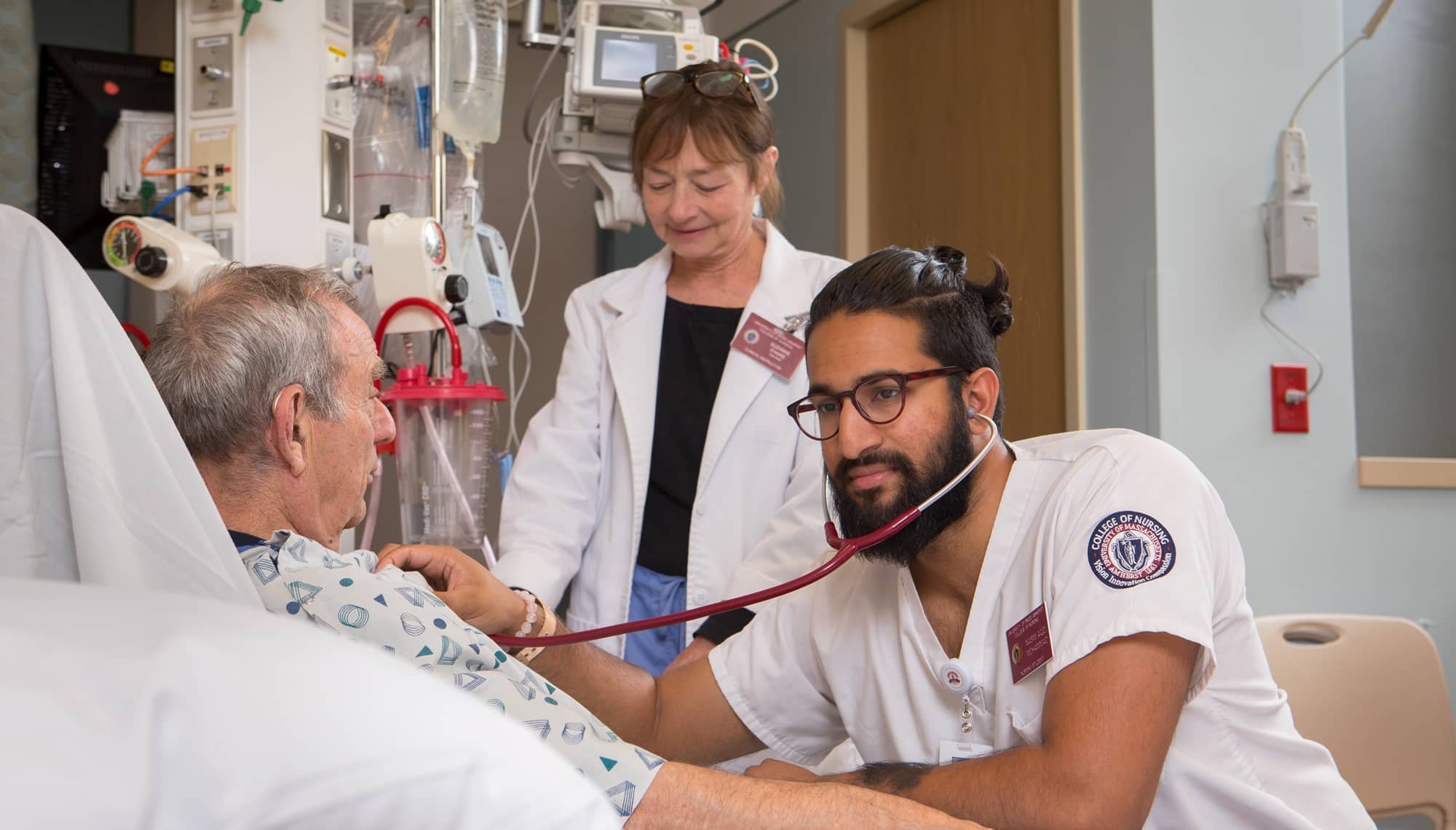Developing the Health Care Workforce of the Future
At multiple UMass Amherst schools and colleges, students are preparing to change the way health care is delivered in the United States.
In October 2023, American Medical Association President Jesse M. Ehrenfeld, M.D., MPH trained a spotlight on the growing physician shortage in the United States. The U.S. Department of Health and Human Services has projected that the demand for registered nurses will hit more than 3.6 million by the year 2030. And even yearly increases in enrollment for physician assistant and nurse practitioner programs point to the urgent need for more highly trained providers.
The result for patients is both difficulty finding a health care provider and a drop in the quality of care overall.
UMass Amherst is working to be part of the solution to this crisis.
The College of Natural Sciences, the Elaine Marieb College of Nursing, the School of Public Health and Health Sciences, the Commonwealth Honors College, and the Graduate School all offer programs to explore health care-related topics and gain the hands-on experience students will need to be competitive applicants to health professional schools and programs.
With so many entry points into medicine, life sciences research, and wellness, the state’s flagship campus has become a destination for students who want to improve health in their communities.

Christopher Tran ’24, a native of Hyde Park, Mass., chose UMass Amherst, in part, based on the opportunities available to develop clinical nursing skills, conduct impactful research, and build the cultural competencies required to provide care to diverse populations.
“The Marieb College of Nursing curriculum is designed to integrate cutting-edge research and practical experience, ensuring that students are well-prepared to navigate the dynamic and evolving landscape of health care,” he says.
Tran is a first-generation college student whose parents are Vietnamese immigrants. He notes that financial aid has allowed him to focus fully on his studies and the co-curricular opportunities UMass Amherst offers, including more than 30 health-focused student groups on campus.
Over the course of his undergraduate career, he has served as an administrative assistant at UMass Amherst’s Acute Care and General Medicine Clinic, interned at Tufts Medical Center in Boston, completed clinical rotations at multiple medical centers in the Pioneer Valley, and developed an honors thesis exploring how to combat Asians’ and Asian-Americans’ low inclination to seek psychiatric treatment.
“Hands-on experiences like the ones I’ve had contribute significantly to the development of well-rounded, empathetic health care professionals, ultimately shaping the future of health care through a workforce that is both skilled and compassionate,” he says.

Paulina Xifaras ’24, a biology and Spanish major, is taking a different pathway to a medical career. She is pursuing preparation for both medical school and physician assistant training. But, like Tran, she feels a similar responsibility to expand her understanding of what diverse communities need from their health care providers.
“I chose a secondary major in Spanish because if I am to become a doctor or physician’s assistant, I never want to be limited in the number of patients I can see,” she says. “We have a very high proportion of Spanish-speaking individuals in the U.S. who deserve the same quality of care as native English speakers.”
At UMass, Xifaras has been able to study abroad in Salamanca, Spain; examine health care issues through a global lens through the Commonwealth Honors College’s International Scholars Program; serve as a research assistant in Associate Professor Sarah Pallas’s neuroscience laboratory; and complete part-time experiences as a care companion at Boston Children’s Hospital and a certified nursing assistant at O’Connell Care at Home in Greenfield, Mass. This activity has all culminated in her application for a Fulbright Fellowship.
“A great deal of my educational experience happened when I pushed myself outside of my comfort zone, joined as many student organizations as possible, and learned to work with my peers,” she says. “Wherever my future professional path takes me, I believe that my UMass education has set me up for success.
This story was originally published by the UMass Amherst Foundation.

